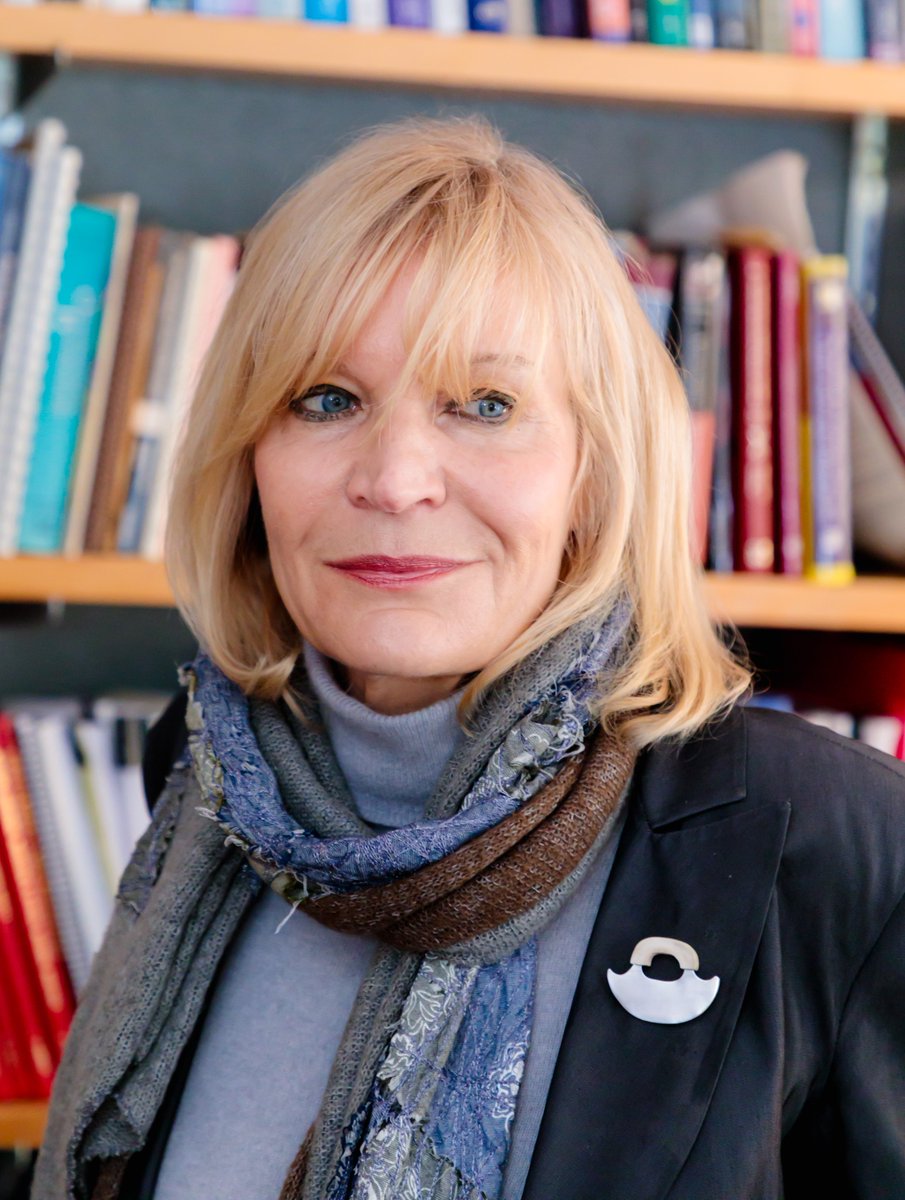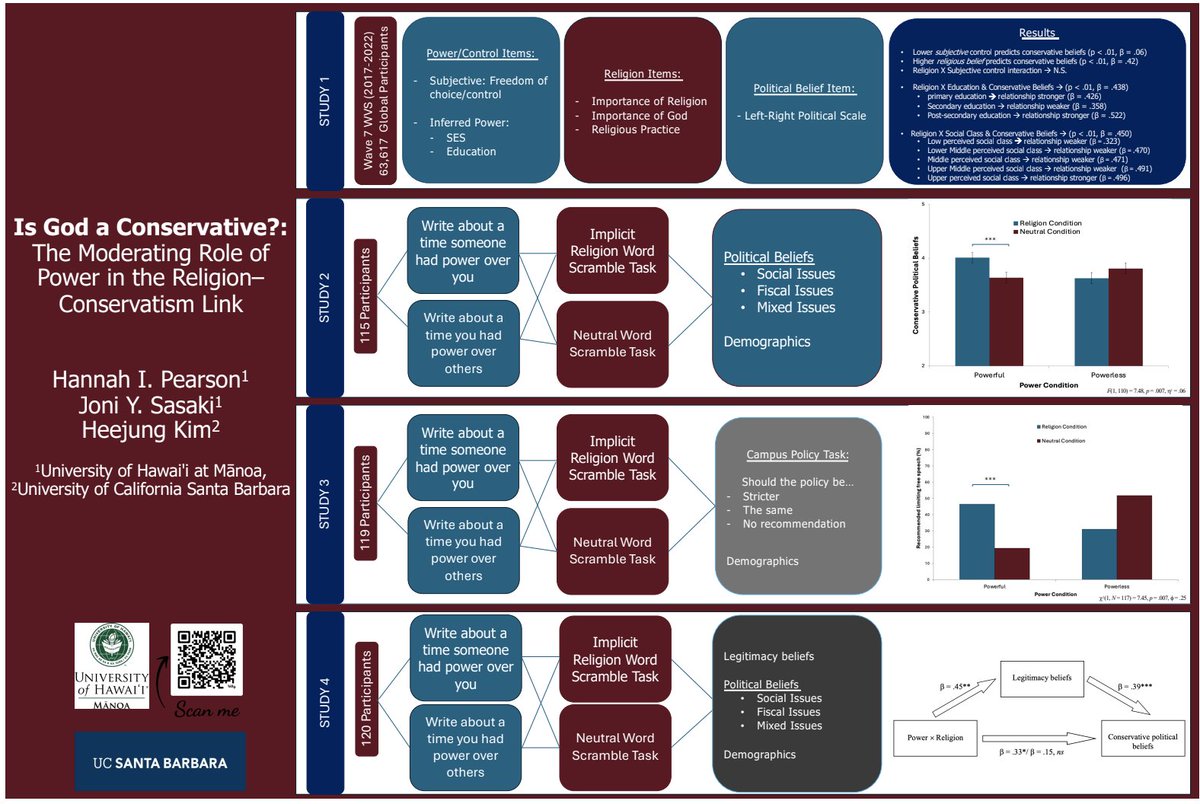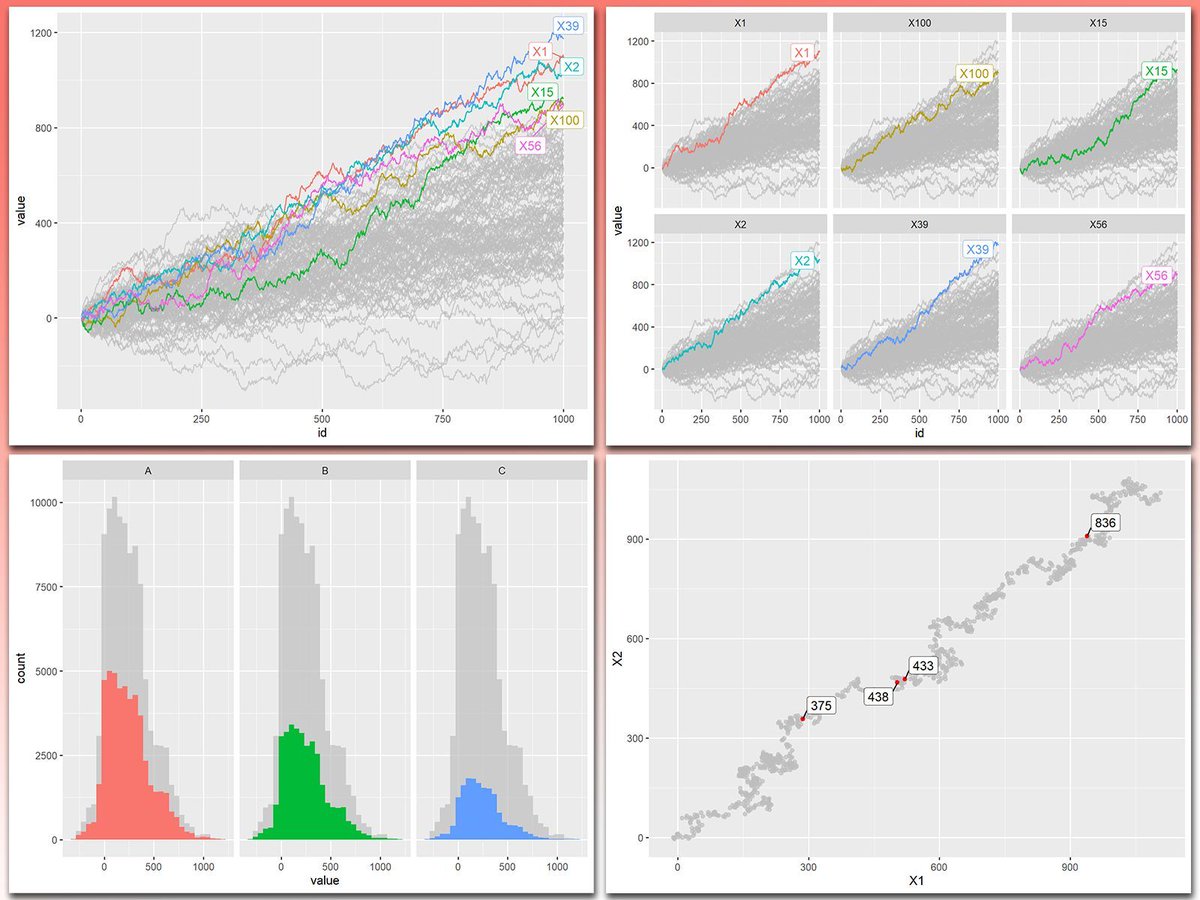
Ronda F. Lo
@rondalopsych
Postdoc @StanfordSPARQ 🌲 I study how culture and diversity 🔄 mind via 3 Rs: Region, Religion, Race. 🇨🇳🇱🇦🇨🇦 R, stats, and methods enthusiast 📊👩🏻💻
ID: 859116252
http://ronda-lo.com 03-10-2012 03:32:00
2,2K Tweet
868 Followers
960 Following

New work from Co-Director Hazel Markus, Ellen Reinhart, Ph.D., & Rebecca Carey shows that U.S. Americans in lower (vs. higher) social class contexts are less likely to believe they contribute to society, due to a cultural bias about what it means to contribute. tinyurl.com/y8dd2a96



🚨We want to share some ideas reflecting on social injustice and political violence through the lens of Liberation Psychology 🚨Juan Diego García-Castro Laboratorio Desigualdad UGR SPARQ Special thanks ISPP Early Career Scholars for leading this. Read here 👉 polpsyispp.medium.com/ispp-early-car…


We know that people tend to see the world similarly with ingroup members. But do people share reality with just anyone in their ingroup? In a 🔥new paper Society for the Science of Motivation🔥we find that people are specifically motivated to create a shared reality with those who support their goals. 🧵1/


Jay Van Bavel, PhD research funding is only part of the issue here. we discuss the challenges of research being led by scholars in the majority world and conducting research there at length in this article: online.ucpress.edu/collabra/artic…


Psychology Prof York Psychology Yvonne Bohr talks to CBC about a new mental health video game that incorporates Inuit culture, traditional knowledge, & cognitive behavioral therapy for Nunavummiut youth to develop healthy coping skills. tinyurl.com/4kt5js2y


Psychology Prof York Psychology Raymond Mar weighs in on research showing how people can make themselves more memorable via four actions: constructing a narrative, maximizing imageability, spurring emotion, & communicating with novelty. tinyurl.com/3ew494nh


Thrilled to see our latest study published in NEJM ✨🦴 Faculty of Medical and Health Sciences Stanford Psychology SPARQ

This is Ronda F. Lo helping me with my R code this morning 🫠

I'm proud to announce: Congratulations to Jeanne Tsai, winner of the 2025 Award for Outstanding Contribution to Cultural Psychology! 👏 She'll receive the award and give a talk at the SPSP Cultural Psychology Pre-Conference Society for Personality and Social Psychology Stanford Psychology


I'm proud to announce: Congratulations to Ayse Uskul, winner of the 2025 Award for Outstanding Contribution to Cultural Psychology! 👏 She'll receive the award and give a talk at the SPSP Cultural Psychology Pre-Conference. Society for Personality and Social Psychology Ayşe Üskül


Thanks again for your paper, Dorsa Amir & Chaz Firestone. Disagreement is the lifeblood of science. I'm replying to this paper in 2 storm tweets. See below..Timothy Bates

It's a privilege to engage with an expert like Joe Henrich on a question as important and foundational as the role of culture in perception. But Dorsa Amir and I think this thread gets several key details wrong, both bigger-picture and finer-grained. Here's how (🧵):

Psychologists often draw their 'theories' from their intuitions, schooled by their personal experiences. In this new manuscript, led by Mohammad Atari, we argue that this reliance has led to a field built around WEIRD Questions.



Sharing my posters from the religion pre-con and opening poster session at Society for Personality and Social Psychology I presented some of my Jewish ID diss. results and a side project about religion and political beliefs! Also, shameless plug, I am on the post-doc market if you are looking for a post-doc! :)





